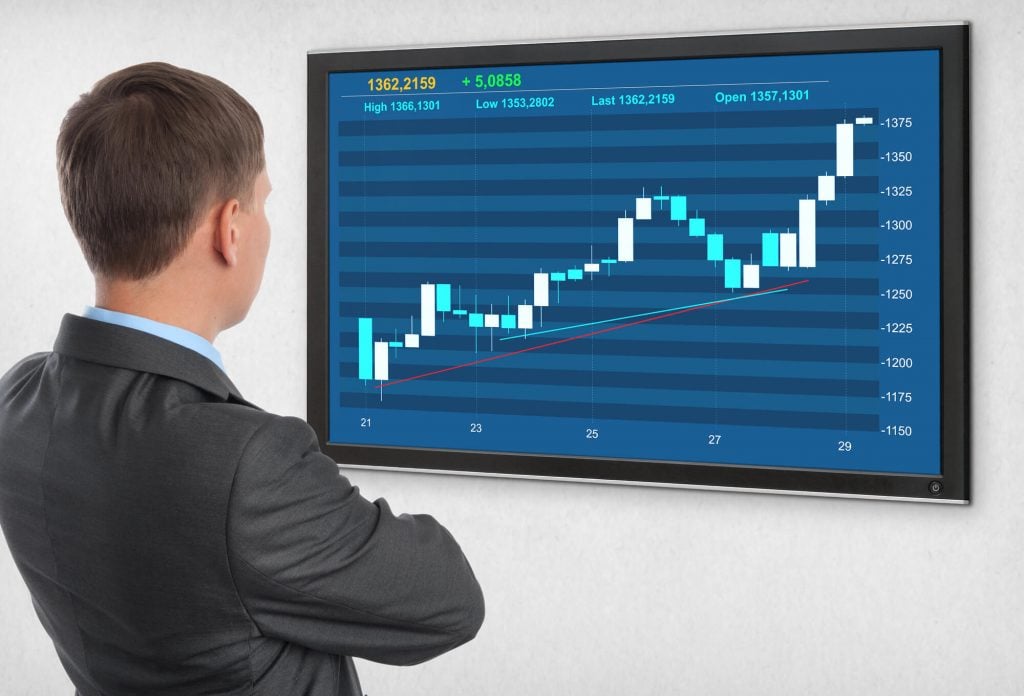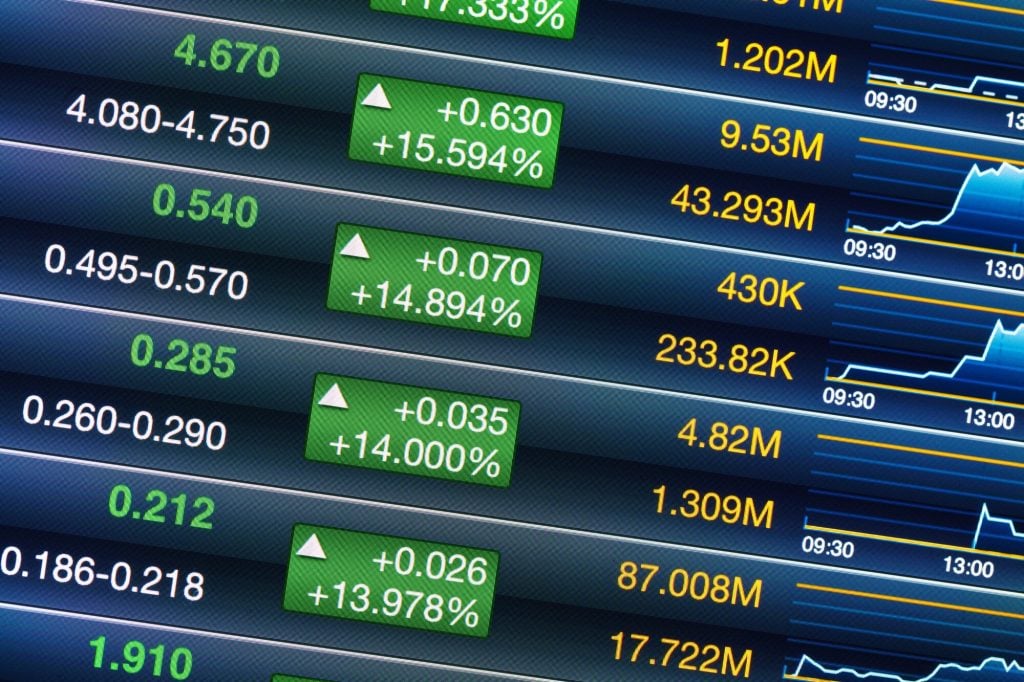
Every human mind is a battleground. The war between our rational thoughts and our human desires has perplexed the greatest minds throughout the ages.
In ancient Greece, Plato depicted the human mind as a chariot rider trying to control two horses. One horse represented intellect and the other horse represented emotion. The chariot rider’s role is to try and balance the two.
If you majored in psychology, you might see how Sigmund Freud would later borrow this three-part structure in his own explanation of the human mind.
But you clicked on this article for investment advice, didn’t you? Well, the world of investing has a lot to do with human behavior, and human behavior is largely governed by the forces we’ve just been discussing.
Which wins out in the psychology of trading? Are investors governed more by their careful analysis, or do most investors go with their “gut?” Let’s take a deeper look at trading psychology and how it influences your decision to buy or sell.

Stock Market Psychology: The Myth of the Rational Investor
For many years, economists operated under the belief that deep down, human beings were inherently rational. In fact, they even gave this theory a name: Rational Actor Theory or “RAT.” Basically, this theory argues that individuals rely on careful, rational calculations to make their financial decisions, seeking to optimize their financial advantage. We just have one question: “Really?”
Most decision-making processes aren’t this calculated or precise, even when it comes to making major purchases.
In The Atlantic, Derek Thompson writes of how the process of buying a fridge can be an absolute ordeal. Why? Because in order to make a decision, “You would have to know the price of every similar fridge in the world; the qualities of every similar fridge; the durability and trustworthiness of every similar fridge; how much it would cost to ship and install every similar fridge; and how much time it would take to obtain that one perfect fridge with the ideal (whatever that means) combination of price, quality, and durability.”
A purely rational consumer would become lost in the details, especially now that eCommerce grants us access to a functionally limitless selection of fridges!
You can imagine how this would translate to the stock market, where the decision to buy or sell is stymied by the fact that stock prices are in a constant state of flux.
At Gorilla Trades, we believe that investment decisions should be based on the best research available, which is why we provide top-quality resources and tools to guide you in the process.
But we also recognize that trading decisions are often influenced by emotions and “gut feelings,” otherwise investors would be faced with the age-old problem of paralysis by analysis!
The Psychology of Trading: What Emotions Govern Our Choices?
In the eighteenth century, David Hume declared that “reason” has always been “a slave of the passions.” Emotion plays a powerful role in our decisions, and the extent to which has been the subject of no small debate, historically speaking.
We don’t have to resolve that question to know just how much investments are influenced by feelings; just ask anyone whose palms get sweaty while considering whether to buy or sell!
Let’s get specific by looking at some examples of how trading psychology is impacted by feelings.
Hope, Fear, and Uncertainty
In a famous experiment, researchers distributed lottery tickets to a group of office workers. Before the tickets were revealed to be winners or losers, the researchers offered each participant a deal: they could trade their ticket for another one, and if they agreed to do so, they would receive an additional payment.
Though their odds of winning would remain the same, fewer than half of the participants agreed to do so. Why?
Participants clung to the hope that their lottery ticket might really be the winner! And if they were to part with it, they risk losing a fortune.
It’s silly enough, but today’s investors often do something similar. The fear of losing out and the hope of great gains can give us a sense of ownership over a particular stock, and a sense of control in the face of uncertainty.

Fear of Regret
Imagine that you own a stock that’s not performing well. As it turns out, you’ve made a bad investment, but you’re reluctant to sell your stock because that would reveal you made a bad judgment call. After all, selling the stock now would require you to admit the mistake and report a loss, and who wants to do that?
Cutting your losses may be a blow to the ego, but it can help avoid more catastrophic losses that you might experience if you choose to “go down with the ship.”
If you find yourself faced with this situation, learn to see regret as a learning experience, which can help you to make better choices in the future.
Loss Aversion
Loss aversion is closely related to the fear of regret. Imagine, once again, that you’re holding onto an underperforming stock. Why not sell it?
Loss aversion refers to the fear you might experience that your stock could quickly rebound — if it did, you would miss out on these profits by selling too soon.
While this may be possible, the final decision must be based on careful research into the company’s history and current financials — not merely the hope for a quick return to profitability.
Fear of Missing Out
Fear can influence your choices in another way: the fear of missing out, or “FOMO,” for short. We’ve all heard the stories of companies that start small and then make a meteoric rise.
Amazon, for example, opened at only $18 per share in 1997. Had you invested $1,000 in Amazon stock back then, you’d be sitting on more than $1.3 million today.
These stories of overnight success provoke hopes that you, too, can get in on the ground floor. There’s nothing wrong with that, of course, and your existing portfolio can easily be augmented by a few of these sorts of investments here and there.
But your financial FOMO could easily tempt you to overinvest in a startup that seems like a “sure bet.”
Rarely is it wise to invest in individual stocks, and while we remember the success stories of Apple and Amazon, investors are inclined to forget the failures of companies like Pets.com or GeoCities.
Overreactions Based on Greed and Fear
Newer investors can be easily impressed by quick fluctuations in the market. For example, if a stock rises suddenly, it might engender confidence that it will continue in that direction. Greed drives you to invest in that company, hoping to ride the wave of its rising success. Conversely, you might notice that one of the stocks in your portfolio dips unexpectedly. Fear may compel you to sell this stock to mitigate your losses.
At the risk of sounding like a broken record, both of these reactions can be addressed with careful planning and research.
Sure, in some cases, your “gut” might be right, and recent stock performance is part of a larger trend that demands that you act. But in many other cases, the fluctuations of a volatile market are cyclical, and by investing in the long-term, you can see the greatest return on your investments.
Stock Trading Psychology: Learning to be a “Satisficer”
Stock market psychology isn’t overly complex. Notice how many of the examples above revolve around either fear or the hope of great returns. But for still others, the sheer prospect of selecting stocks can be an exercise in anxiety.
Remember Derek Thompson’s fridge example earlier? Thompson noted that some people fall into the category of “maximizers,” trying to make just the right decision.
Maximizers are rarely happy with their choices, always wondering about the road not taken. Investors, too, can be guilty of this, trying so hard to maximize their choices that they find themselves dissatisfied with their investments and spending their days wondering “what if?”
Thompson suggests there’s another type of consumer: the “satisficer.” That’s not a typo; Thompson is coining a word that merges the words “satisfy” and “suffice.”
Good investors are “satisficers.” They perform their due diligence, but they are equally willing to make a firm decision regarding their investments.
This doesn’t mean that you can’t make adjustments along the way, but by adopting this approach, you can avoid many of the stock trading psychology problems we’ve highlighted above, and learn to be a wiser, happier investor.

Invest More Wisely with Gorilla Trades
Hopefully, you’ve gained some knowledge from this overview of stock market psychology.
Many of the challenges associated with the psychology of trading can be overcome with the right research tools. Gorilla Trades members get exclusive access to the best tools in the industry, which can be used to optimize portfolios and make you a savvy investor.
Sign up today and take advantage of our free, 30-day trial. We’re confident that with our content and resources, you can become the kind of investor you’ve always wanted to be.
